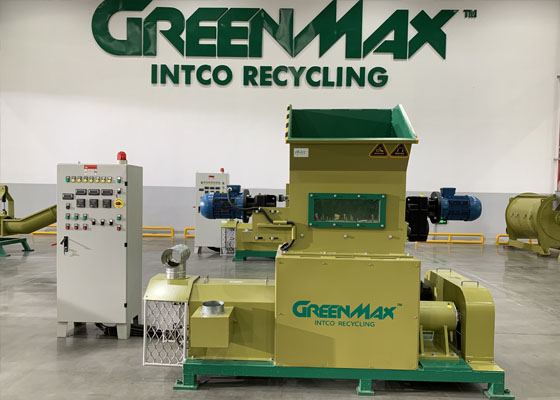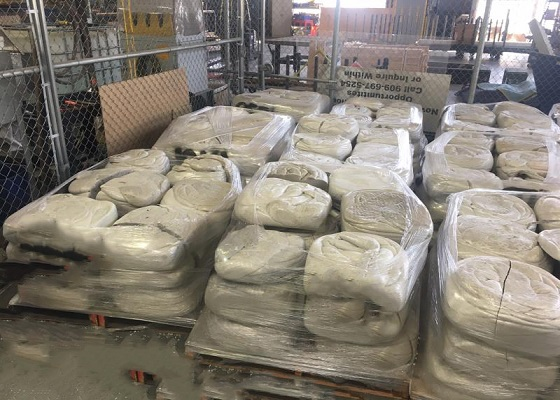GREENMAX offers an ecological, efficient and scientific approach to polystyrene recycling
Recently, the Commission on Ecological Transformation and Demographic Challenges approved the Waste and Contaminated Soil Act, which includes consideration of a tax of 0.45 euros per kilogram of plastic for non-reusable plastic containers and a shift to a deposit, return and recycling system. for such waste returns (SDDR). Socialist Party representative Esther Padilla stressed that "this bill is superb because we must comply with European directives and we must comply with waste reduction targets in order for European funds to continue to be available."
This shows that most Europeans are beginning to realise the importance of recycling. Non-reusable materials, such as those mentioned above, should be reduced or even eliminated. It is also important to reduce the amount of material that can be recycled but disposed of as waste in landfill. Can recycled polystyrene specialist GREENMAX recycle waste well? Before answering this question, let's look at what happens if EPS plugs are not removed correctly.

Due to the very low density of EPS, recycling is very difficult and therefore the recovery rate is very low - less than a quarter globally. The most common method of disposal of EPS goes into the recent approval of the Waste and Contaminated Soil Act by the Commission on Ecological Transformation and Demographic Challenges, which includes a tax of 0.45 euros per kilogram of plastic for plastic containers that cannot be reused. There is a move towards a deposit, return and return (SDDR) system for this waste. Esther Padilla, Socialist Party representative, emphasised: "This bill is superb because we have to comply with European directives and we have to comply with waste reduction targets in order for European funds to continue to arrive".
This shows that most Europeans are beginning to realise the importance of recycling. Non-reusable materials, such as those mentioned above, should be reduced or even eliminated. In addition, it is important to reduce the amount of materials that can be recycled but disposed of as waste in landfill. Can GREENMAX, the recycled polystyrene specialist, recycle waste well? Before answering this question, let's look at what happens if EPS plugs are not removed correctly.
Due to the very low density of EPS, recycling is very difficult and therefore the recovery rate is very low - less than a quarter worldwide. the most common disposal methods for EPS are landfill and incineration. Both of these methods always have negative consequences. Large quantities of EPS take up valuable soil resources for centuries and in the process flow into the sea via rivers, threatening the health of marine life. Incineration inevitably produces harmful gases which in severe cases can lead to climate problems. These problems can be avoided with the EPS compactor.
The EPS compactor has a completely different recycling effect to that of landfill. As a popular recycling machine, it can densify and reduce EPS waste with a compression ratio of 50:1 or 90:1. Problem managers obtain recycled EPS material which can be sold directly as a raw material or as a secondary raw material after pelletizing. The sold plastic pellets will be put into production as a new raw material, returning the EPS waste to the market.

The GREENMAX EPS compactor overcomes the unique recycling concept towards reuse and reduction in an ecological, efficient and scientific way, taking the issue of polystyrene recycling to the next step in closing the recycling loop and helping European countries to move towards an SDDR system in a way. In other words, there is a definitive answer to the above question.GREENMAX is a highly trusted brand that not only offers professional polystyrene recycling machines, but also complete professional recycling solutions for its customers.
